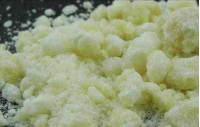
Buy THJ-2201 for sale online - USA vendor

- FREE shipping, 6-7 days delivery time
- Inner sending exist.
The main payment option is Bitcoin. As extra ways WU, MG.
We alwayse provide FREE samples of Top products with the main order.
Loyalty program exist, second order will be - 5%OFF
Safely work only with us! We provide - re-shipment guarantees.
Here you'll discover unused lawful items of immaculate quality.
Some time recently purchase if you don't mind make beyond any doubt that the items beneath your curiously are lawful in your country.
We do not offer a pharmaceutical items or beneath control items.
Table of Contents
- Introduction
- Chemistry
- Pharmacology
- Physical Effects
- Visual Effects
- Cognitive Effects
- Combinational Effects
- Toxicity and Harm Potential
- Tolerance and Addiction Potential
- Dangerous Interactions
- Legal Status
- FAQ
Exploring THJ-2201: A Synthetic Cannabinoid Analogue
Introduction
THJ-2201 (1-(5-fluoropentyl)-1H-indazol-3-ylmethanone) emerges as a notable synthetic cannabinoid, bearing resemblance to AM-2201, a well-known predecessor. Marketed by numerous research chemical vendors, THJ-2201 has gained attention as a legal alternative following the ban of AM-2201 in 2011.
Pharmacological Properties
Cannabinoids, including THJ-2201, are typically consumed through smoking or vaporization to achieve rapid onset effects and quick offset. However, what sets THJ-2201 apart is its oral activity when dissolved in lipids, offering a prolonged duration of action. Notably, like its counterparts, THJ-2201 exhibits insolubility in water but dissolves effectively in ethanol and lipids.
Safety Concerns
Despite its legal status and accessibility, the chronic abuse of synthetic cannabinoids like THJ-2201 poses significant risks. Unlike natural cannabis, synthetic cannabinoids have been linked to numerous fatalities and heightened toxicity profiles. Consequently, it is strongly advised against prolonged usage or excessive doses of THJ-2201 due to its potential for severe side effects and adverse outcomes.
Understanding THJ-2201: Composition and Structure
Chemistry
THJ-2201, scientifically known as 1-(5-fluoropentyl)-1H-indazol-3-ylmethanone, belongs to the synthetic cannabinoid family, characterized by a substituted indazole group. This compound features an indazole moiety substituted at R1 with a fluoropentyl chain, a characteristic shared with substances like 5F-PB-22 and 5F-AKB48. Furthermore, the indazole core of THJ-2201 is substituted at R3 with a carbonyl group, bonded to a naphthalene moiety. Naphthalene, a bicyclic structure composed of two fused benzene rings, is also present in THJ-018. The carbonyl bridge in THJ-2201 classifies it as a ketone. Essentially, THJ-2201 serves as an analog of AM-2201, with the core indole structure substituted by an indazole base.
Exploring Pharmacological Properties
Pharmacology
While formal studies on THJ-2201 are lacking, structural analysis suggests similarities in binding profiles to AM-2201 and in vivo properties akin to Δ9-THC. It is postulated that THJ-2201, akin to AM-2201, acts as a potent full agonist on central CB1 and peripheral CB2 receptors, with Ki values of 1.0 and 2.6nM, respectively. However, the precise mechanisms underlying these interactions and their contribution to the cannabinoid high remain unclear.
Subjective Effects
Disclaimer
The effects described below are sourced from the Subjective Effect Index (SEI), derived from anecdotal user reports and personal analyses by contributors to PsychonautWiki. It's crucial to approach these effects with skepticism. Additionally, these effects may not manifest predictably or reliably, with higher doses increasing the likelihood of experiencing the full spectrum. Moreover, adverse effects, including addiction, severe injury, or fatality, become more probable with elevated doses.
Deciphering THJ-2201 Dosage Guidelines
Threshold
A dosage of less than 0.5 mg is considered the threshold for experiencing the effects of THJ-2201.
Light
For a light experience, a dosage ranging between 0.5 to 1 mg of THJ-2201 is typically administered.
Common
The common dosage range for THJ-2201 falls between 1 to 2 mg, providing users with a moderate level of effects.
Strong
To achieve strong effects, individuals may consume a dosage of 2 to 5 mg of THJ-2201.
Heavy
Dosages exceeding 5 mg of THJ-2201 are categorized as heavy, potentially leading to intense and prolonged effects.
Exploring Physical Effects of THJ-2201
Spontaneous Tactile Sensations
The "body high" induced by THJ-2201 often manifests as a warm, soft, and pleasurable tingling sensation that envelops the body following ingestion. This sensation intensifies with the onset, reaching its peak before gradually fading away.
Sedation
THJ-2201 tends to induce sedation, leading to lowered energy levels and a desire to relax. Higher doses may even promote sleepiness, although this effect can be counteracted by engaging in physical activities.
Motor Control Loss
THJ-2201 can cause a partial to moderate suppression of motor control, particularly with higher doses. While users may experience difficulty with movements, it rarely leads to a complete inability to walk or perform basic actions.
Appetite Enhancement
Similar to other cannabinoids, THJ-2201 often increases appetite, commonly referred to as "the munchies." Clinical studies indicate that cannabinoids enhance food enjoyment and interest, likely due to activation of cannabinoid receptors in the hypothalamus responsible for regulating food intake.
Vasodilation
THJ-2201, like other cannabinoids, is associated with vasodilation, which decreases blood pressure and increases blood flow throughout the body. This may result in expanded arteries in the eyeball and compensatory increases in heart rate.
Pain Relief
Clinical evidence suggests that cannabinoids, including synthetic analogues like THJ-2201, provide pain relief by activating cannabinoid receptors CB1 and CB2.
Perception Alterations
- Perception of bodily lightness
- Changes in gravity, potentially causing vertigo or sensations of falling, particularly at moderate to high doses
- Nausea and potential vomiting at strong to heavy doses
- Abnormal heartbeat (tachycardia)
- Dehydration, often referred to as "cotton mouth"
Examining Visual Effects
Colour Enhancement
THJ-2201 can enhance color perception, potentially intensifying the vibrancy and saturation of visual stimuli.
Acuity Suppression
Users may experience a suppression of visual acuity while under the influence of THJ-2201, leading to blurred or dulled vision.
Geometry
Moderate doses of THJ-2201 may induce closed-eye visuals, characterized by visual distortions such as ripples or patterns. In individuals who regularly use psychedelics, THJ-2201 may produce consistent visual effects resembling an averaged-out depiction of past psychedelic experiences. These visuals are typically mild, fine, and small in scale but brighter and more defined than those experienced with cannabis.
Examining Cognitive Effects of THJ-2201
Emotion Enhancement
One of the primary cognitive effects of cannabinoids like THJ-2201 is their ability to enhance emotions in proportion to dosage. This enhancement can lead to feelings of euphoria, extreme laughter, and heightened immersion in tasks or activities. However, it can also exacerbate anxiety and paranoia, particularly depending on the user's current mental state.
Anxiety
THJ-2201 tends to be more anxiogenic compared to Δ9-THC and THJ-018, potentially inducing feelings of unease or nervousness.
Paranoia
High doses or chronic administration of cannabinoids, including THJ-2201, can lead to paranoia, a state of heightened anxiety and fear.
Cognitive Processes
- Thought Connectivity
- Thought Deceleration
- Conceptual Thinking
- Mindfulness
- Analysis Suppression
- Dream Suppression
Psychosis
Prolonged use of synthetic cannabinoids like THJ-2201 may increase the risk of psychosis, particularly in vulnerable individuals with predisposing factors such as a personal or family history of schizophrenia.
Increased Music Appreciation
THJ-2201 users may experience heightened appreciation for music, with sounds appearing more immersive and enjoyable.
Auditory Effects
Enhancements
THJ-2201 can enhance auditory experiences, potentially leading to heightened perception and enjoyment of sounds.
Tinnitus
Studies suggest that cannabinoids may worsen tinnitus in some individuals. THJ-2201, particularly at strong to heavy doses, may increase the likelihood of experiencing tinnitus, a condition characterized by ringing or buzzing in the ears.
Combinational Effects
Psychedelics
Combining THJ-2201 with psychedelics can intensify and prolong both visual and cognitive effects. Caution is advised, especially for inexperienced users.
Dissociatives
THJ-2201, when used alongside dissociatives, can significantly enhance experiences of geometry, euphoria, dissociation, and hallucinations.
Alcohol
Mixing THJ-2201 with alcohol can lead to extreme nausea, dizziness, and alterations in perception. It's recommended to consume cannabinoids before alcohol and exercise caution.
Toxicity and Harm Potential
The toxicity and long-term health effects of THJ-2201 remain largely unstudied in scientific contexts. While anecdotal reports suggest minimal negative effects at low to moderate doses, overdose can lead to physical discomfort, including heart palpitations and vertigo. Prolonged use may increase the risk of mental illness and psychosis, particularly in susceptible individuals.
Tolerance and Addiction Potential
Chronic use of THJ-2201 can lead to moderate addiction and psychological dependence. Tolerance develops over time, requiring higher doses for the same effects. Withdrawal symptoms may occur upon cessation of use.
Dangerous Interactions
Combining THJ-2201 with certain substances can be dangerous or even life-threatening. Stimulants like amphetamines and cocaine can increase anxiety levels and risk of negative experiences. Always research potential interactions before combining substances.
Legal Status
THJ-2201 remains legal in most parts of the world, but its status varies by country. It is classified as a controlled substance in countries like Germany, Sweden, and the United States. In the United Kingdom, it is categorized as a Class B controlled substance.
FAQ
1. What is THJ-2201?
THJ-2201 is a synthetic cannabinoid and analog of AM-2201, often marketed as a legal alternative to banned cannabinoids.
2. What are the common dosage ranges for THJ-2201?
- Threshold: < 0.5 mg
- Light: 0.5 - 1 mg
- Common: 1 - 2 mg
- Strong: 2 - 5 mg
- Heavy: 5 mg +
3. What are the physical effects of THJ-2201?
Physical effects include spontaneous tactile sensations, sedation, motor control loss, appetite enhancement, vasodilation, pain relief, and changes in gravity.
4. What are the visual effects of THJ-2201?
Visual effects may include color enhancement, acuity suppression, and geometry, including closed-eye visuals and visual distortions.
5. What cognitive effects are associated with THJ-2201?
Cognitive effects include emotion enhancement, anxiety, paranoia, thought connectivity, thought deceleration, conceptual thinking, mindfulness, and analysis suppression.
6. What should I know about combining THJ-2201 with other substances?
Combining THJ-2201 with psychedelics, dissociatives, or alcohol can have intensified effects and may pose risks. Always use caution and research potential interactions beforehand.
7. Is THJ-2201 addictive?
Chronic use of THJ-2201 can lead to psychological dependence and tolerance, requiring higher doses for the same effects. Withdrawal symptoms may occur upon cessation of use.
8. What is the legal status of THJ-2201?
The legal status of THJ-2201 varies by country. It is classified as a controlled substance in some countries, including the United States and the United Kingdom.











